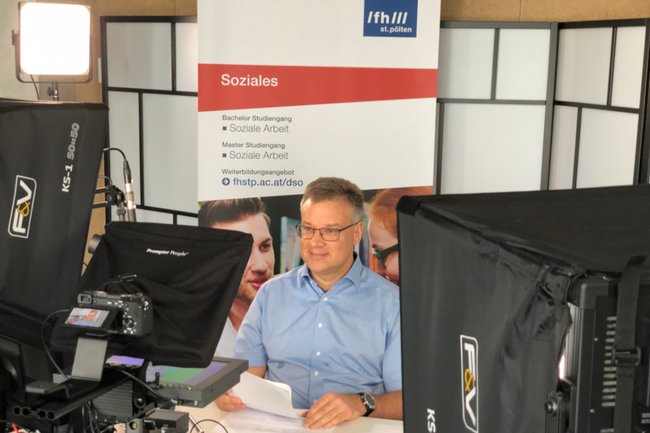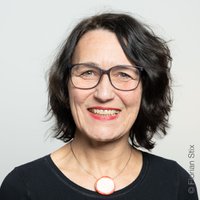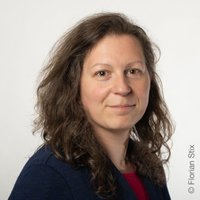Social Work: Rebellion and Academisation
A Report on the Social Work Science Day 2021

Under the motto “(K)eine Rebell*in: 20 Jahre Ausbildung und Forschung” (“(Not a) Rebel: 20 Years of Training and Research”), the Social Work Science Day 2021 focused on facets of rebellion in Social Work.
Three keynote speeches outlined the development of Social Work training in St. Pölten over the past 20 years as well as aspects of professionalisation in this context.
A poster presentation and workshops provided insights into current teaching/research projects. The participants had the opportunity to discuss and find rebellious aspects of the symposium and the profession online.
Formal Guidelines instead of Rebellion?
Back in the year 2001, the three-year training of Social Workers at the “Bundesakademien für Sozialarbeit” (Federal Academies of Social Work) was replaced by study programmes at universities of applied sciences. The switch from the vocational school system to the field of applied university sciences served to increase the professionalisation and academisation.
“On the occasion of this anniversary, we want to critically reflect upon the profession and its training. Does rebellion still exist in Social Work – unruliness combined with the power of indignation? Have student demos and interference in the public and university-level discourse made way for the compliance with guidelines for written papers? In how far can rebellion be understood as a mission of Social Work?”, asked Christine Haselbacher, Head of the Department of Social Work at the St. Pölten UAS, in terms of thought-provoking impulses for the symposium.
Rebellion, Academisation, Opportunities for Participation
Three keynote speeches challenged the charged relationship between the ever-developing profession of Social Work and the changing training structures of the past 20 years. Under the title “Bis hierher und weiter” (“So far and further”), Head of Department Christine Haselbacher and UAS lecturer Christine Schmid shed light on Social Work training in the present and the future.
Monika Vyslouzil, the first Head of the diploma study programme, outlined the development of Social Work training at the training location St. Pölten from the 1970s all the way to the study programme at the University of Applied Sciences. “Even in times of the Social Work Academy, the team of teachers engaged in activities that had nothing to do with the prescribed curriculum. Developments were anticipated that later found a more suitable setting at the University of Applied Sciences. Important aspects of this transition are further education programmes, publication and the participation in the Erasmus programme”, explained Vyslouzil.
Andrea Nagy from the Free University of Bozen-Bolzano contributed an autobiographical sketch on the topic “Rahmenbedingungen professioneller Entwicklung und sozialer Mobilität” (“Framework Conditions of Professional Development and Social Mobility”). “Possibilities and perspectives of individual further training and higher education are largely dependent on social context conditions that need to be politically shaped.
Furthermore, a higher consciousness needs to be developed: in designing the framework conditions of education, the focus has to be on participation possibilities and social mobility. These are core topics of Social work as well. The rebellious function of Social Work also lies in encouraging and supporting clients in effecting fundamental improvements when it comes to their own life situation and conditions. Education plays a decisive role in this context”, Nagy pointed out.
Student Projects and Workshops
In workshops based on their teaching/research projects, students showed how they develop Social Work-relevant solution approaches to current social questions through research. Topics included the role of peers in Social Work, Social Work involving older people, documentation and assessment of Social Work care processes in primary care, social services user participation in teaching, participative research in Social Work, Social Work in companies, community work, and district management.
Social Work Science Day
6 May 2021, online via Zoom

FH-Prof. DSA Mag. (FH) Christine Haselbacher
Head of Faculty of Health and Social Sciences Member Extended University Leadership
Christine Schmid , MA
Academic Director Social Pedagogy (BA) Course Leader Social Pedagogy (acad.) Course Leader Social Pedagogy (Focus on Social Work) (BA (CE)) Course Leader Social Pedagogy (MA) Department of Social Sciences
FH-Prof. Mag. Dr. Johannes Pflegerl
Head of Research InstituteIlse Arlt Institute for Social Inclusion Research Lecturer Deputy Head of Department Department of Social Sciences